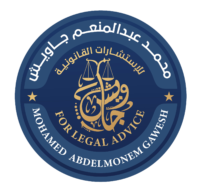"Random Consultations and How to Address Them"
There is no doubt that the cyberspace has contributed to the spread of various forms of fraud. It starts with online marketing of products and extends to other forms and numerous manifestations of deception, including identity theft, impersonation, and false credentials. Users, whether they are perpetrators or victims, operate in a virtual reality where it is difficult to determine the identity of other users or the validity of the information they present to others. However, we specifically discuss here those who spread and operate on social media platforms. Sometimes you find individuals advertising their services as business and economic consultants, while others offer educational or family counselling services. The truth is, before the emergence of social media platforms, accessing professional service providers relied on recommendations and referrals from acquaintances and trusted individuals. This provided a sense of assurance when seeking advice or services from a consultant or specialist, as their expertise and reputation were known to many, built over years of experience and a good reputation. However, in the current time, we find a chaotic and random situation where individuals with unknown qualifications, experiences, or backgrounds advertise themselves as family or relationship counsellors on social media networks. Moreover, consultations themselves are being offered through social media platforms or video calls. The risks associated with this situation are that the secrets of households and families may be exposed to unknown or unqualified individuals due to the randomness in providing opinions or the inability of self-proclaimed “advisors” to separate their advice from their emotions, biases, or personal experiences. When discussing the qualifications of someone providing consultations, it is essential to consider not only their expertise and abilities but also whether they have taken an oath or made a commitment before the relevant authority, considering that they deal with confidential and personal information that concerns both anonymous and well-known individuals. Among these secrets could be deviations or charitable acts, all of which are protected secrets that the law and constitution ensure are preserved. Therefore, such secrets should only be entrusted to someone who is trustworthy and responsible. Indeed, consultations can be manipulative or destructive, serving to incite hatred between spouses or promote harmful intentions. These destructive opinions can successfully find their way to individuals seeking advice during vulnerable or challenging times in their lives. Considering the qualifications and criteria, in my humble opinion, it would be advisable to entrust the licensing of such services to a specific authority or entity. This authority would establish standards, tests, requirements, and scientific qualifications for individuals seeking a license. The process should involve academic studies rather than solely relying on completing a course.
Lastly, we advise everyone not to be swayed by unknown individuals who advertise services that can impact their lives or their family’s well-being. It is important to exercise caution and seek guidance from trusted and qualified professionals.
May Allah guide and assist us ,,,
By Lawyer
Mohammed Gawish

